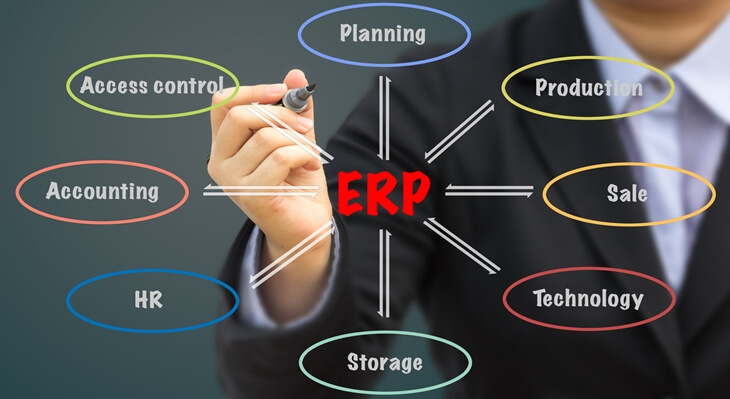An ERP system is a business process management software that enables an enterprise to use a system of comprehensive applications to manage their enterprise and automate many back-office functions related to human resources, services, and technology.
The implementation problems that these systems face are driven by the integrated, risky, and complex nature of the business processes they automate.
There are various signs of ERP System failure which companies can avoid:
Unrealistic Implementation budget, resources, and project timeline:
Companies end up spending more time, energy, and money than the stipulated amounts. The primary reason for this is the unrealistic expectations to begin with, which then leads to poor decisions in the long run.
It is essential to keep the sales proposal and implementation plan practical, to save your business from ERP implementation failure.
Unclear business requirements:
Without clear business processes and requirements, projects are very much likely to go over budget, over-customize the software, and take longer to finish and hence fail to meet the organization’s strategic intent.
Lack of Integration Ability:
If your Enterprise resource planning system can’t integrate with your existing business data or applications, you may be in trouble. Locked up data within your ERP can jeopardize your business and make it difficult to access.
You can’t depend on the data to be up-to-date or to be in real-time which makes it hard for quality management and informed decision making.
Silos of data that exist independently from each other are encouraged by a lack of integration capabilities. This increases complexity and ensures data redundancy and duplication– which can compromise with your accessibility and quality of vital information.
Zero customization:
Every business is unique and requires different functionalities, support, and features that off-the-shelf solutions don’t offer. Customizing your ERP adds cost, risk, and time to the project.
But, despite all these factors it can be challenging to manage your business without the added customization.
Already existing solutions for some other business model can cause issues with your present organization’s needs and can also increase the change management challenges for the organization.
With a growing demand for ERP systems, the risk factor associated with ownership of the hardware and software has come down to a more significant extent for organizations.
Yet, you need to watch out for signs that indicate that your system is headed for failure. If you do notice those signs, have a word with your ERP consultant or vendor, and get things figured out.
You may also like to Read:
5 Benefits of cloud-based Manufacturing Execution System in Business

